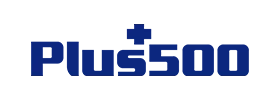The National Futures Association (NFA) plays a pivotal role in the financial markets of the United States, particularly in ensuring the safety, transparency, and integrity of Forex trading. Traders looking to invest in Forex within the USA must prioritize working with NFA-regulated brokers to safeguard their investments and comply with legal requirements. This guide delves into the importance of NFA regulations, the organization’s history, its current role, licensing conditions, and the benefits traders can reap by partnering with NFA-regulated brokers.
Below you can find a list with the best Forex brokers regulated by the NFA (USA):
Top 5 Forex Brokers Regulated by NFA
-
Plus500
- Multi-Level Regulated Broker
- Proprietary trading platforms
- Easy to use mobile app
Trading InstrumentsDeposit Methods- Commodities CFDs
- Crypto CFDs
- Energy CFDs
- ETF CFDs
- Forex CFDs
- Indices CFDs
- Metals CFDs
- Share CFDs
- Stock CFDs
- US Stock CFDs
-
eToro
- Popular broker for social trading
- Trading is conducted on innovative in-house platform
- Offers both investing and trading products
Trading InstrumentsDeposit Methods- Commodities CFDs
- Crypto CFDs
- ETF CFDs
- Forex CFDs
- Indices CFDs
- Metals CFDs
- Share CFDs
- Stock CFDs
- US Stock CFDs
-
Forex.com
- Access to over 80 currency pairs, majors and exotics.
- Traders may pick from a variety of platforms, including MT4 and MT5, as well as Forex.com proprietary online and mobile platform
- Forex.com provides exclusive research, news feeds, and a range of educational resources to help traders make informed decisions.
Trading InstrumentsDeposit Methods- Bond Futures
- Bond Options
- Bonds CFDs
- Commodities CFDs
- Commodity Futures
- Commodity Options
- Crypto CFDs
- Crypto Options
- Currency Futures
- Energy Futures
- Energy Options
- ETF CFDs
- ETF Options
- Forex CFDs
- Forex Options
- Index Futures
- Index Options
- Indices CFDs
- Interest Rate Futures
- Metal Futures
- Metal Options
- Metals CFDs
- Share CFDs
- Stock Options
-
Oanda
- OANDA offers access to great trading platforms, including MT4 and MT5, as well as proprietary mobile app for extra flexibility.
- You can trade over 65 major and minor currency pairs, cryptocurrencies and CFDs.
- OANDA is very well-regulated by top tier authorities, such as the FCA, ASIC, IIROC, ensuring safety and protection.
Trading InstrumentsDeposit Methods- Bonds CFDs
- Commodities CFDs
- Crypto CFDs
- Forex CFDs
- Indices CFDs
- Metals CFDs
-
Interactive Brokers
- Providing access to more than 135 global markets: Forex, Cryptocurrencies, Bonds, Commodities and Stocks
- Seamless integration with third-party research platforms and API access for automated trading and portfolio management.
- Advanced trading tools, such as algorithmic trading options, which allow professional-level trading executions.
Trading InstrumentsDeposit Methods- Bond Futures
- Bonds CFDs
- Commodities CFDs
- Crypto CFDs
- ETF CFDs
- Forex CFDs
- Indices CFDs
- Metals CFDs
- Mutual Funds
- Share CFDs
- Stock Options
Brokers Compared by Spread
| Brand | Commission per lot | |
|---|---|---|
| Plus500 | AVG 1.4 pips | $0 |
| eToro | AVG 1 pips | $1 or $2 (stocks only) |
| Forex.com | MIN 1 pips | $0 for Standard accounts; $5 per standard lot per side for Raw accounts |
| Oanda | AVG 1.5 pips | $3.50 on Zero Accounts |
| Interactive Brokers | AVG 0.2 pips | From 0.08 to 0.20 bps x trade size |
FX Brokers Deposit Method Comparison
| Brand | Minimum deposit | |
|---|---|---|
| Plus500 | $100 | |
| eToro | $50 or $100 based on country ($10 for the UK) | |
| Forex.com | $100 | |
| Oanda | $0 ($25 for Trustly, Visa, Mastercard) | |
| Interactive Brokers | $0 |
Forex Brokers by Regulator
| Brand | Maximum leverage | |
|---|---|---|
| Plus500 | 1:300 (Pro Account), 1:30 (ASIC | Retail Account), 1:30 (BaFin | Retail Account), 1:30 (CySEC | Retail Account), 1:30 (FCA | Retail Account), 1:30 (FMA | Retail Account), 1:30 (SFSA | Retail Account), 1:30 (DFSA), 1:300 (FSAS), 1:20 (MAS), 1:300 (SCB) | |
| eToro | 1:400 (CySEC | Pro Account), 1:30 (CySEC | Retail Account), 1:400 (FSAS | Retail Account) | |
| Forex.com | 1:30 (ASIC), 1:50 (CFTC), 1:200 (CIMA), 1:30 (CIRO), 1:30 (CySEC), 1:30 (FCA), 1:200 (MAS), 1:400 (Pro Account), 1:25 (JFSA) | |
| Oanda | N/A | |
| Interactive Brokers | 1:30 (ASIC | IBKR Lite), 1:30 (CBI | IBKR Lite), 1:30 (FCA | IBKR Lite), 1:25 (JFSA | IBKR Lite), 1:20 (MAS | IBKR Lite), 1:500 (Pro Account) |
Forex Brokers Platform Availability
| Brand | FX pairs to trade | |
|---|---|---|
| Plus500 | Proprietary Mobile, Proprietary Web | |
| eToro | Proprietary | |
| Forex.com | MetaTrader 4, MetaTrader 5 | |
| Oanda | MetaTrader 4, TradingView | |
| Interactive Brokers | Proprietary Mobile, Proprietary Web |
Comprehensive Comparison of Forex Brokers regulated by the National Futures Association
Why Are Regulations So Important for Forex Trading?
Forex trading is inherently risky due to its highly leveraged nature and volatile markets. Without proper regulatory oversight, traders are exposed to unscrupulous practices, fraud, and financial instability. Regulations aim to:
- Protect Traders: Ensuring brokers follow fair practices to safeguard client funds and maintain transparency.
- Prevent Fraud: Establishing strict compliance standards to prevent scams and unethical behaviour.
- Promote Stability: Ensuring the integrity of the financial markets and preventing market manipulation.
- Enhance Confidence: Encouraging investor participation by providing a secure and trustworthy trading environment.
NFA-regulated brokers are held to some of the most rigorous standards globally, making them a reliable choice for traders.
History of the NFA
The National Futures Association was established in 1982 as a self-regulatory organization for the derivatives industry, including futures, options, and Forex. It was created under the authority of the Commodity Futures Trading Commission (CFTC) to regulate activities in these markets and protect participants from fraud and unethical practices.
Key Milestones:
- 1982: The NFA is founded to regulate futures trading.
- 2000: The Commodity Futures Modernization Act expands the NFA’s oversight to include retail Forex trading.
- 2010: Following the Dodd-Frank Act, the NFA introduces stricter rules for Forex brokers, including leverage limits and registration requirements.
Today, the NFA’s role is more critical than ever in fostering transparency and trust in the rapidly evolving financial markets.
The NFA Today
The NFA operates as a self-regulatory organization under the supervision of the CFTC. Its primary goal is to protect market participants while ensuring the integrity of the trading ecosystem. Key functions of the NFA include:
- Broker Registration: All Forex brokers operating in the USA must register with the NFA and meet its stringent requirements.
- Monitoring and Enforcement: The NFA continuously monitors brokers for compliance and imposes penalties for violations.
- Education and Resources: Providing traders with tools and information to make informed decisions.
- Dispute Resolution: Offering arbitration and mediation services to resolve disputes between brokers and clients.
The NFA’s active role ensures that traders can operate in a fair and transparent environment.
Licensing Conditions and Costs
Obtaining an NFA license is a rigorous process designed to weed out untrustworthy entities and ensure only reputable brokers operate within the US market. Key requirements include:
Financial Requirements
- Minimum Capital: Brokers must maintain a minimum net capital of $20 million to ensure financial stability and the ability to meet client obligations. This high capital requirement is one of the strictest globally and ensures that brokers have the financial strength to operate securely and cover client positions.
- Segregated Accounts: Client funds must be kept in segregated accounts separate from the broker’s operational funds. This protects client money in the event of broker insolvency and ensures transparency in fund management.
- Liquidity Assurance: Brokers must demonstrate sufficient liquidity to handle market volatility and client withdrawals without jeopardizing their operational stability.
Operational Requirements
- Transparency: Brokers must provide clear and accurate information about their services, fees, and trading conditions. Misleading advertising or unclear fee structures are strictly prohibited.
- Risk Disclosures: Full disclosure of trading risks to clients is mandatory. Brokers must educate traders about the potential losses involved in Forex trading, particularly the risks associated with leverage and market volatility.
- Compliance Officers: Brokers must employ dedicated compliance officers to oversee adherence to NFA regulations. These officers are responsible for ensuring the broker’s operations remain within legal and ethical boundaries and for addressing any issues identified during audits.
- Regular Reporting: Brokers have to submit regular financial and operational reports to the NFA, allowing the organization to monitor their compliance continuously.
Costs
- Registration Fees: Brokers are required to pay initial registration fees, which cover the processing and evaluation of their application.
- Annual Membership Dues: These recurring fees are based on the broker’s trading volume and help fund the NFA’s regulatory activities.
- Audit Costs: The NFA conducts routine audits to ensure compliance, and brokers bear the costs associated with these audits. These inspections can include on-site visits, documentation reviews, and financial analysis.
- Technology and Infrastructure Investments: To meet the NFA’s data and reporting standards, brokers often need to invest in robust technology platforms capable of providing real-time reporting and secure data management.
While these costs are substantial, they underscore the commitment of NFA-regulated brokers to maintaining high standards. By meeting these financial and operational requirements, brokers demonstrate their reliability and dedication to providing a secure trading environment for their clients.
How to Confirm License Legitimacy
Verifying a broker’s regulatory status is essential for ensuring you’re dealing with a legitimate entity. The NFA provides an easy-to-use online tool known as BASIC (Background Affiliation Status Information Centre). Here’s how you can confirm a broker’s license:
- Visit the BASIC Database: Navigate to https://www.nfa.futures.org.
- Search the Broker: Enter the broker’s name or NFA ID.
- Review Details: Verify the broker’s registration status, compliance history, and any disciplinary actions.
- Cross-Check Information: Compare the details on the NFA website with the broker’s claims to ensure accuracy.
By conducting this due diligence, traders can avoid falling victim to unregulated or fraudulent brokers.
Restricted Trading Instruments
NFA regulations impose certain restrictions on the types of instruments that brokers can offer to retail clients. These restrictions aim to prevent excessive risk-taking and protect traders from complex, opaque financial products. By setting clear boundaries, the NFA ensures a safer trading environment for all participants.
-
Spot Forex
Brokers generally provide spot Forex trading, which includes buying and selling currency pairs at the current market price using standardised contract parameters. This standardisation guarantees openness and allows traders to understand the mechanics of their deals without hidden complications.
-
Binary Options
The NFA prohibits binary options for retail clients. These instruments are considered highly speculative and carry significant risk due to their all-or-nothing payout structure. The ban helps protect traders from potentially catastrophic losses associated with these high-risk products.
-
Exotic Instruments
Access to exotic financial instruments, such as highly speculative derivatives or less liquid assets, is limited for retail traders. This restriction ensures that traders focus on more stable and widely understood markets, reducing the likelihood of unexpected losses stemming from unpredictable price movements.
-
Other Prohibited Instruments
The NFA may also restrict other complex financial products that lack transparency or pose excessive risks. For instance, certain leveraged derivatives and synthetic instruments are not permitted for retail trading. These restrictions aim to keep the trading landscape manageable and accessible, particularly for newer or less experienced participants.
By limiting the availability of overly complex or high-risk instruments, the NFA ensures that traders engage in responsible trading practices. This regulatory oversight fosters a more transparent and secure trading environment, encouraging sustainable market participation.
Leverage Limits
One of the most notable aspects of NFA regulation is the stringent leverage limits imposed on retail Forex trading. These limits aim to reduce the risk of substantial losses due to high leverage.
- Major Currency Pairs: Maximum leverage is capped at 1:50.
- Minor and Exotic Pairs: Maximum leverage is capped at 1:20.
These limits are significantly lower than those offered by brokers in other jurisdictions but are crucial for fostering sustainable trading practices and protecting traders from catastrophic losses.
Benefits of Trading with NFA-Regulated Brokers
Trading with an NFA-regulated broker offers numerous advantages that contribute to a safer and more transparent trading experience. These include:
- Enhanced Security: Client funds are held in segregated accounts, ensuring they remain separate from the broker’s operational funds and are protected in the event of insolvency.
- Stringent Oversight: The NFA conducts regular audits and monitors brokers for compliance with its regulations, ensuring adherence to high standards.
- Transparent Operations: NFA-regulated brokers are required to provide clear disclosures about their trading conditions, fees, and potential risks, enabling traders to make informed decisions.
- Access to Dispute Resolution: Traders can resolve disputes with brokers through the NFA’s arbitration and mediation services, offering a fair and efficient resolution process.
- Lower Risk Exposure: Leverage limits and instrument restrictions help traders manage risks more effectively and avoid excessive losses.
- Trust and Credibility: NFA membership is a mark of credibility, providing traders with confidence that they are dealing with a reputable and reliable broker.
Conclusion
The National Futures Association serves as a cornerstone of the US financial regulatory landscape, ensuring that Forex trading is conducted in a secure, transparent, and fair environment. By choosing NFA-regulated brokers, traders can benefit from enhanced protections, reduced risks, and access to reliable trading services. While the rigorous standards imposed by the NFA may seem restrictive, they ultimately serve to create a more stable and trustworthy market for all participants.
As a trader, always prioritize due diligence, confirm a broker’s regulatory status, and understand the rules governing Forex trading in the USA. By doing so, you can embark on your trading journey with confidence, knowing your investments are protected by one of the most robust regulatory frameworks in the world.
Why You Should Trust RationalFX
When it comes to making informed decisions about forex brokers, it's essential to rely on trustworthy sources. RationalFX, a company with over 20 years of experience since its founding in 2005, has established itself as a credible authority in the industry. With an impressive collection of over 2500 reviews on Trustpilot, boasting a score of 4.2, it's clear that Rational FX has built a reputation for providing reliable and unbiased information.
What sets Rational FX apart is its rigorous evaluation process, which considers over 30 different criteria when selecting forex brokers. This comprehensive approach ensures that every aspect of a broker's service is taken in consideration, including regulation, forex spreads, trading platforms, deposit methods, and reputation. With its wealth of experience, transparent review process, and outstanding customer feedback, Rational FX is a trusted source for anyone seeking reliable information on forex brokers. You can reach us via e-mail at feedback@rationalfx.com or contact us through our social media accounts here: Facebook, YouTube, or leave a feedback here.








